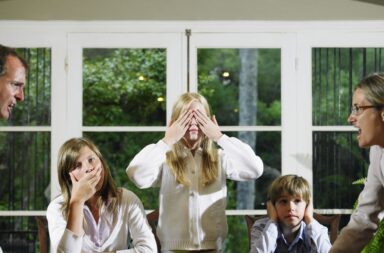The fact that a person is single and has no children does not mean that there cannot be certain compulsory heirs to whom they must leave part of their inheritance in their will, as we will explain below.
What kind of will can a single person without children leave?
In the case of a person who has no children and is not married, the determining factor in deciding what kind of will they can make is whether or not their parents are alive. Therefore, we will differentiate between the two cases:
If their parents are alive
If their parents are alive, the unmarried person without children will have to leave them at least half of their inheritance in their will, in equal parts, as this would be their legal share. If only one of them is alive, they will be entitled to that half of the inheritance in its entirety.
The other half of the inheritance will then be freely disposable. In other words, the testator may leave that entire portion to whomever they wish, who does not have to be a sibling (even if they have one) or any other relative, as it may even be a person with whom they have no family relationship.
If your parents are not alive
When an unmarried person with no children also has no parents, the first thing to do is to see if they have other ascendants, as they would also be entitled to half of the inheritance.
In this case, the rules are somewhat unusual. These are cases that are unlikely to occur, but let’s review them briefly:
If there are ascendants on both the father’s and mother’s side, in equal degree, 50% of the inheritance will be divided between the two lines equally. For example: if the paternal grandparents and the maternal grandmother survive, the paternal grandparents are entitled to half of that 50%, and the maternal grandmother to the other half.
If there are ascendants of different degrees, those closest in degree are entitled to 50% of the inheritance in its entirety. For example: if the paternal grandparents and a maternal great-grandmother survive, only the paternal grandparents inherit that half of the inheritance.
However, if there are no parents or other ascendants, an unmarried person without children has the right to dispose of their inheritance freely. They have no compulsory heirs or legitimate heirs, so they can bequeath their estate to whomever they wish, even to someone who is not a relative.
They can also leave their inheritance to some relatives and not to others, part to relatives and part to other people, etc.
If an unmarried person without children does not leave a will, who inherits?
In the event that an unmarried person without children dies without leaving a will, their closest relatives will inherit, in the following order:
Parents, in equal shares or in full if only one of them survives.
The closest ascendants (first grandparents, then great-grandparents, etc.).
Siblings. If any of them have already died, their share will be inherited by their children, if they have any.
Nephews and nieces.
Other collateral relatives up to the fourth degree. Therefore, the deceased’s uncles, aunts, cousins, and great-uncles and great-aunts would inherit.
If none of the above relatives exist, the State would inherit.


